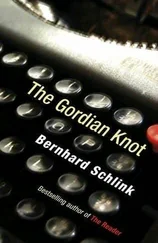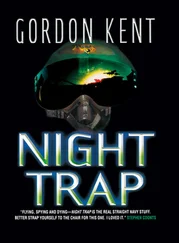The cleaning woman would come in today. He wrote her a note. “Buy bread. Get good stuff, no white paste—you know.” He looked around the kitchen. What else did he need? He wrote, rice. He could live on rice. Chicken breasts. She had been a superb cook. He was not. Frozen dinners, a dozen or so. He put some money on the note, wrote the check for her, as Janey must have done, once a week, years and years. Had he ever seen the cleaning woman? Must have. An image of a too-thin white woman swam into his consciousness, swam away. Something about ADD or OCD or one of those goddam disorders everybody had now.
The telephone rang. He hobbled to the extension on the kitchen wall, expecting it to be the cleaning woman saying she couldn’t come that day—also part of her image, a certain unreliability that had plagued Janey,
something about her kids and her disorders.
“Shreed.”
“George, Stan.” Rat-a-tat machine-gun of a voice, instantly recognizable—a friend (of sorts) in Internal Investigations. “George, they’re calling off the Siciliano investigation. Just thought you’d like to know.”
Fear surged, and he could feel himself flush. He controlled his voice, however, and said, “How come?”
“She made a lot of noise, got a lawyer. More trouble than it’s worth, was the call.”
“Bad call. Okay, thanks.”
He thought about it as he flossed his teeth. He saw an angry man in his mirror, composed his face better, shrugged into his suit-jacket while watching himself and decided that he looked okay. Grieving, enraged, worried, but okay. The suit was for the memorial service, which he would endure because that was what you did, because memorial services were for the survivors, who needed to believe that when they died somebody would also remember and sing hymns and give eulogies. For his own part, no memorial was needed, and memory itself was enough, but grief was now turning one of its corners toward anger and the change was dangerous. He knew his own anger and knew to fear it.
Bad times a-comin’ , he thought.
His people had missed the woman in Venice and Trieste. He thought he’d neutralized her by tossing Siciliano to Internals. Now the Siciliano thing was falling apart. Bad, bad.
Shreed was no fool about his situation. Talk of a mole had rumbled around the Agency for years; anybody who put scraps of evidence and suppositions together would have had a look at him, if only because he had a finger in a lot of pies and he had been there a long time. But they wouldn’t do anything, not actually do anything (polygraphs, bugs, taps, interviews), not until somebody like this woman who wanted money gave them cause. Having the Siciliano woman to entertain themselves with would have kept them occupied for a couple of years—all the time he needed—and now they were washing that out and he couldn’t afford it.
The Siciliano woman would have to stay a suspect.
It was still too early to go to the office, and he vented his anger by stumping through the house on his canes, trying to erase the signs of Janey. He didn’t need mementos—how could he ever forget her?—and the house itself, its smell, its decor, was all hers, anyway. But things of hers that were now useless, from her toothbrush in the bathroom to a pair of old slippers near the back door, had to go.
He stormed through the house. He jammed things into plastic trash bags. He threw things.
When he got to the bedroom where she had hoped to die but where death had come too slowly, he almost refused to open the door. This one can stay a few days, he thought, and then, hating his own cowardice, he flung the door open so that it banged back against the wall, and he leaned in the doorway, glowering on his canes, taking in the futility of all fights against death. Magazines she had tried to read, a television he had bought for her, an IV rack, a godawful bedpan thing. He began to throw things into the corridor.
It was when he got to the drawer in the bedside table that he found the things that caused him to decide that it was time for him to wind it all up.
A lot of junk lay in there, lipsticks and pencils and sickroom crap, but there were thirteen ampoules of morphine and two syringes, and they were what did it. He put out his hand to gather them up and throw them away, and he was aware of his hand there, hovering over the drawer, not gathering them up, as if the hand knew better than he did. And he looked at the morphine. It was as if a voice whispered to him: Morphine. You could walk like anybody else with morphine. It wasn’t the vanity of wanting to seem normal that affected him, however; no, it was the idea of looking normal.
As if the voice had whispered, If you could walk like other people, your most identifiable characteristic would be gone, and you’d be invisible. Which was a way of saying, You could vanish.
Then his hand moved and gathered the ampoules and the syringes and, more carefully than he had handled anything else, put them into a plastic sack that he carried downstairs and put into the freezer. By the time he was down there, he saw the implications, was already planning it, gauging the risks, the gains: without his canes, with an injection of morphine and a false passport, he could be out of the country before the wolves got the scent. He’d have to do something else to throw them off—fake a suicide, an accident, or—? He’d work that out.
But he’d have to set up the Chinese disaster first. Set it up and get it running and then vanish. Leaving nothing behind except this house. No lost love, no regrets. She was dead; why wait?
But an escape plan took time, and to gain him time, the Siciliano woman would have to remain a suspect.
Shreed leaned back against the refrigerator and began to think it all out. He looked down at his hands and saw that they were trembling, and for the first time he realized, to his astonishment, that he was scared.
At Langley, Sally Baranowski was waiting, like everybody else, for Shreed. They didn’t think of it just like that, for they all had other concerns, but the memorial service sat in the middle of the day like a pillar in a highway, it and Shreed unavoidable. Plus they were all waiting to see how he would take it.
For Sally Baranowski, waiting to see how Shreed would take something was an old routine. She had once been his assistant (that year’s Ray Suter, as she now said to friends, although Suter had lasted several years longer than she), then had briefly followed Shreed in his old job when he had been promoted. That she had failed in that job was partly his doing, she believed—retribution for having once ( once ) been disloyal to him. He had taken retribution in the best of all possible managerial ways: he had given her so much rope that she had hanged herself. Now she was in a liaison job that wasn’t going to go anywhere except toward an honorable retirement thirteen years down the pike.
Still, when she saw Shreed she was shocked. She saw him seldom now, usually thought he was his old, bitter, amusing self, but this morning he looked merely grim. Is it grief? she wondered. Hard to imagine Shreed feeling grief, although they said he had adored his wife. No, it was more than grief, something hard and ugly, she thought. Look out, people. She was representing her new boss on a committee where everybody else knew each other, and, as the new kid on the block, she found it best simply to listen and watch. And the one she watched was Shreed.
The memorial service was at eleven. She had debated not going but had decided that her own bitterness was better hidden, so she would go and be solemn. Now, the committee chair, Clyde Partlow, kept looking at his watch to make sure he wound things up in time to get there, too. They all had copies of the agenda, which he forced with the brutality of a cowhand pushing cattle through a chute. Shreed said almost nothing.
Читать дальше












